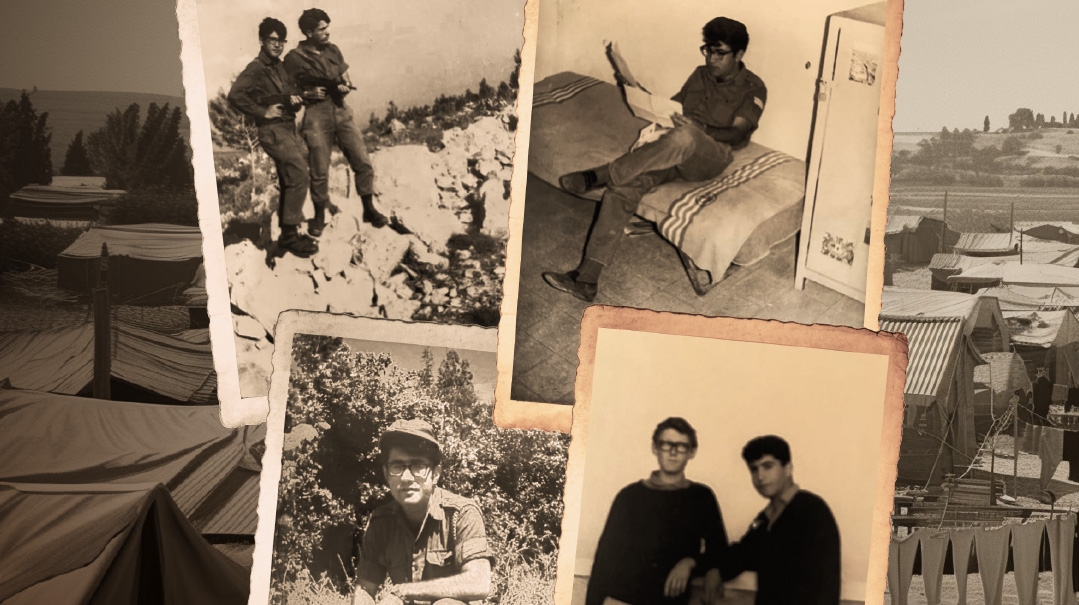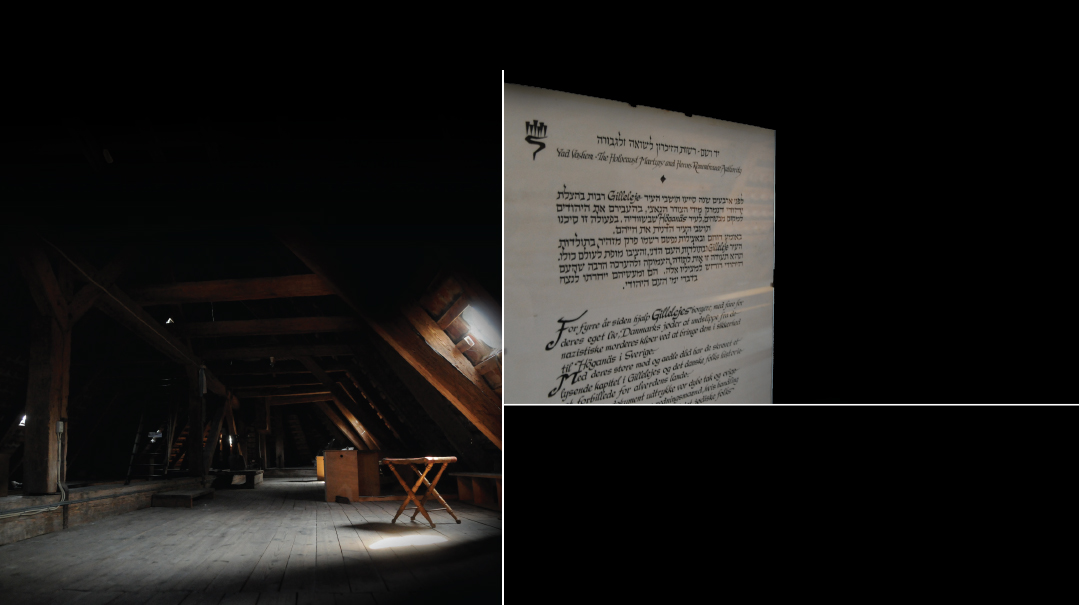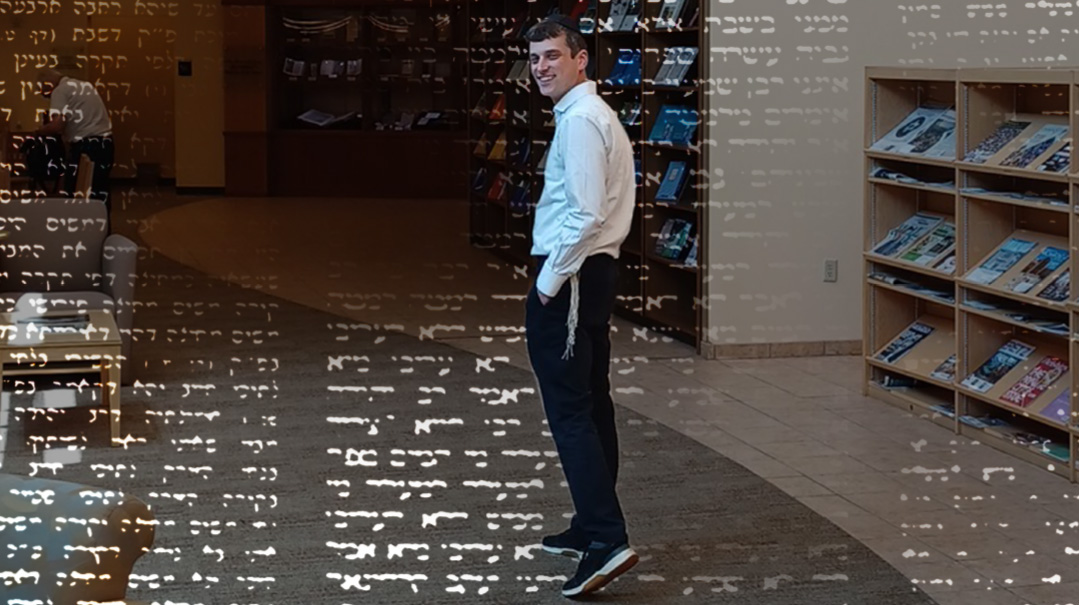Dream Come True
| May 26, 2020We leaned forward in our seats, wondering excitedly what forbidden word Mrs. Muskat was going to write on the board

Years ago, you crossed paths. It may have been a brief encounter, it may have been a relationship spanning years. In that meeting place, something changed. Her hands warmed your essence, left an imprint upon your soul.
Seven writers sought out the women who changed them — and told them of the impact they’d had
So my young, Modern Orthodox eyes, Mrs. Devorah Muskat was from a different planet.
I first met her as my sixth-grade Chumash teacher. She was Miss Weiner then, the kind of teacher whose heels clicking down the corridor made us all run for our seats. She had our class under perfect control, and her Chumash lessons had me mesmerized.
She got engaged and married that year, which lent her an added aura of mystique. Our biggest treat was to take time out of a lesson to hear stories about her chassan. I’d never encountered the concept of learning in kollel before, and as she’d quote Torah thoughts from her chassan, a seed was planted in my mind: I want a husband like that.
But it was in eighth grade, when Mrs. Muskat became our mechaneches, that she really impacted my life. By then, she had a baby girl, and Adina Aidel stories were added to her repertoire. But it was the other stories she told, the ideas she taught, that changed me.
She introduced us to a Torah hashkafah that was sometimes at odds with the communities we lived in, and she wasn’t afraid to tell it like it wasis, like when she discussed being shomer negiahh, not an easy concept for girls in a coed elementary school who were exposed to Hollywood to swallow.
I still recall the time she spoke about nivul peh. She related the shock she felt when, as a young girl, she walked past a group of non-Jewish children, and, for the first time in her life, heard someone use a not-nice word.
“I can’t even say it,” she told us. “So I’ll write it.”
We leaned forward in our seats, wondering excitedly what forbidden word Mrs. Muskat was going to write on the board.
She wrote: Shut up.
Tension broken, we all giggled at her idea of a curse word. But I remember how jarred I was, as it dawned on me that it was possible to be raised in an environment of such sensitivity. And from that day on, I couldn’t say those words.
Most of her teaching wasn’t about what we weren’t supposed to do, but about the beauty of a Torah lifestyle. Her weekly after-school mishmar classes were a window into a new and wonderful world. She called the class Jewish Aviation and would speak about concepts like our purpose in this world and our inner greatness. Sometimes she’d play a Journeys song, and spend the lesson analyzing the depth of Abie Rotenberg classics like “Ride the Train” and “Neshomaaleh.” I became a lifelong Journeys fan.
And then it came time to choose a high school.
I felt myself at a crossroads: There was the familiar option, which would be to continue on in a similar school system to the one I’d been in until then. And then there was the local Bais Yaakov high school. It felt like a big leap out of my comfort zone, but there was something inside pulling me in that direction. It was that side of me that whispered that I wanted something more from life, that was pushing me to growth and a serious Torah life.
It was the side of me that I associated with Mrs. Muskat.
Mrs. Muskat guided me in my decision, in personal talks in which she helped me clarify what I was looking for and what my options were. Of course, I knew what she wanted me to choose, but I’d already learned to trust her judgment, to see her as my role model for where I wanted to end up in the future.
With her help, and with the guidance and blessing of my parents, I chose the Bais Yaakov high school. It was the first pivotal decision of my life.
Once I moved on to high school, I didn’t keep up with Mrs. Muskat. And yet, I still felt close to her. Years later, when I needed to observe a class for an education course I was taking, I called Mrs. Muskat, and she invited me to come to my old elementary school. Just a few months later, she was present at my wedding.
Time went on, my family grew, and we moved to Israel. Life was busy and very full of the present.
Then, one day, my father mentioned he had a new chavrusa. Avreichim from a local kollel had started a Sunday morning learning program with balabatim. And my father’s young chavrusa, he’d discovered, was Mrs. Muskat’s nephew.
My parents knew well how much Mrs. Muskat had meant to me; I’d often mention the eigh8th- grade teacher who had such an impact on my life. But now, the thought occurred to me — there was one person who might not know this, and that was Mrs. Muskat herself. I realized Hashem had presented me with an opportunity.
My father got Mrs. Muskat’s e-mail address, and I sat down to write. I gave her a brief update on my life, and then wrote:
I think about you and speak about you often, as one of the people who had a huge impact on my life. It occurred to me that I should tell you that, instead of just telling others. You taught me at such a critical time in my life and opened my eyes to ideas and hashkafos that really set me on my path for life, by inspiring me to choose a high school that would move me forward on that path.
May Hashem continue giving you the koach to teach and inspire others.
It felt so good to finally be expressing the gratitude that I wasn’t able to at age 13. I waited eagerly to hear back from her — and I didn’t have to wait long. She wrote back that very day and with all of the warmth and enthusiasm I remembered. She was so happy to hear from me and very touched by my e-mail.
Mrs. Muskat updated me on her family. Her daughter Aidel, she told me, was married with two kids. (Boy, did that make me feel old!) We exchanged family photos, and she told me that seeing my family brought tears to her eyes.
There’s something surreal about being reunited with a childhood teacher and role model and realizing that she’s now relating to you as an adult and equal. (Even if I still sometimes feel like that eighth grader who’s only beginning to figure out her life.)
What was most surreal was when it hit me: That dream that I’d had back in eighth grade, when I’d looked at Mrs. Muskat and told myself, Tthis is the life I want for myself, that dream had come true.
On the Other Side
Mrs. Devorah Muskat’s take:
I vividly recall the day I saw the email from Gila. I felt a rush of excitement, as my memory brought me back to a young budding teen who stood out for her intelligence, maturity, and middos tovos, which she inherited from her refined and erliche parents.
I read what she wrote and was stunned. Here was an e-mail from a girl whom I’d taught in her formative years, who was reconnecting decades later!
I’ve received a lot of feedback over the years, particularly from the high school and seminary girls whom I taught. And sometimes that feedback would come four or five years later, with a heartwarming letter inside a wedding invitation. But this stood out because of the sheer number of years that had passed since I’d taught Gila.
I’d always wondered how my junior high students were doing, and there was a time when I tried to locate them, but I stopped when it became too time-consuming and difficult. So it was so nice to hear now what had happened in Gila’s life. I immediately e-mailed her back.
And then came the best part. Gila sent me a photo of her family from a recent bar mitzvah. That’s when the full magnitude of what she’d written hit me. I had tears in my eyes as I realized she looks like the same Gila, but now with a ben Torah husband and beautiful Torahdigge children.
For me, this is a story of chizuk to those of us in the field of chinuch. One never knows the impact of one’s efforts down the line. When this girl was in eigh8th grade, could I have known that she’d marry a marbitz Torah and raise her family in Eretz Yisrael? And I wouldn’t have known, had she not told me!
I’d love to take this opportunity to reach out to all my former students and ask them to reconnect (I can be reached via Mishpacha). You probably don’t realize how I carry each and every one of you in my heart, and that I wish each of you the very best mazeal and brachah.
(Originally featured in Family First, Issue 694)
Oops! We could not locate your form.












